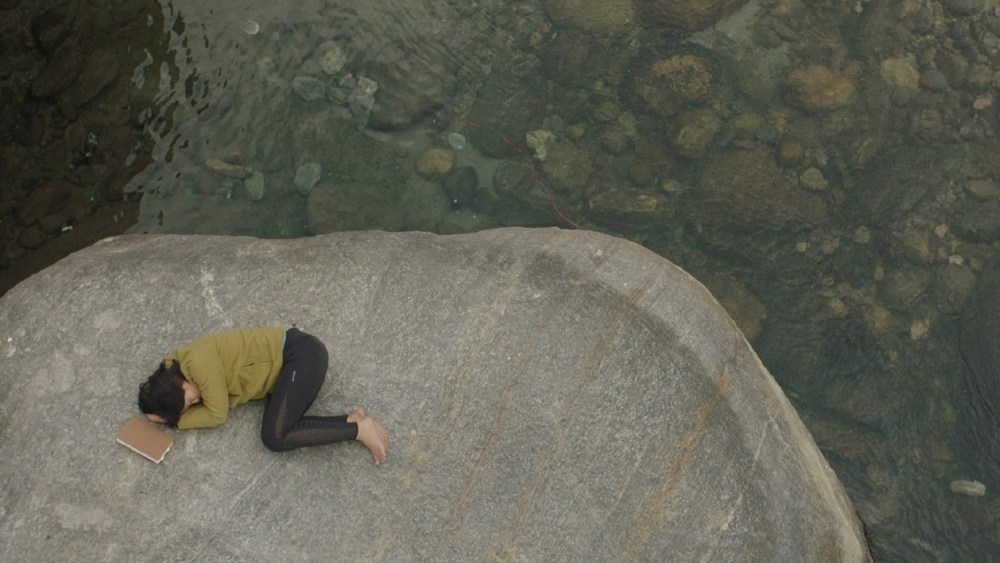Tribeny Rai never intended to romanticize her homeland. The Sikkimese filmmaker’s debut feature “Shape of Momo” deliberately avoids romanticizing mountain communities, presenting instead an unflinching portrait of women navigating patriarchal expectations in a Himalayan village.
“People always want to romanticize places like ours, turn them into some beautiful backdrop for someone else’s story. I’ve never liked that,” Rai tells Variety ahead of the film’s world premiere at the Busan International Film Festival, where it screens in the Vision section before its European bow at San Sebastián’s New Directors section.
The Nepali-language drama follows Bishnu, who returns to her mountain village after quitting her job, only to face mounting family pressures and societal expectations. As tensions rise with her pregnant sister’s arrival and a budding relationship with a “suitable” boy from her community, Bishnu must choose between conforming to tradition or claiming her independence.
Celluloid Dreams has acquired worldwide sales rights to the film, marking a significant milestone for the India-South Korea co-production.
For Rai, the story emerged from what she describes as a “quiet struggle” familiar to many of her generation. “We leave the places that shaped us in search of opportunity, freedom and a better life, only to find ourselves belonging nowhere,” she explains. “I am still caught in that in-between space, unable to decide whether to stay in my village or surrender to the city.”
Much of protagonist Bishnu’s restlessness mirrors Rai’s own experiences. “The quiet anger of growing up as a girl constantly told she was not enough. The exhaustion of having to prove herself at every turn. That anger shaped me and it found its way into Bishnu,” the director reveals.
Working with co-writer Kislay, Rai sought to move beyond personal grievance to build “a world of layered characters and situations that might belong to everyone.” The film’s multi-generational female portraits examine how patriarchal burdens persist even in women-only spaces.
“I grew up in a house full of women. Even when men were absent from the household, the weight of the rules they had drawn remained,” Rai observes. “I wanted to explore this silent inheritance, how it passes from one generation to the next and how difficult it is to break free.”
The film incorporates contemporary cultural shifts, including K-pop and karaoke culture prevalent in Northeast India. Drawing inspiration from Chinese filmmaker Jia Zhangke’s approach to capturing temporal changes, Rai sees cinema as a recording medium for cultural evolution.
“In my village, children now connect more with K-pop than with mainstream Hindi cinema,” she notes. “Including these details felt important, not just for authenticity but as a way to preserve this moment… this intersection of tradition and global influence, for the future.”
The project has traversed an impressive festival circuit, developing through labs at Dharamshala, Film Bazaar, HAF and Cannes. The film previously won top honors at the Work-in-Progress Lab at India’s NFDC Film Bazaar and received the Hong Kong-Asia Film Financing Forum Goes to Cannes award at the Hong Kong FilMart.
“When you take your project into labs and markets, you have to be ready to be overwhelmed,” Rai reflects. “But fortunately, each of these spaces led to decisions that kept shaping and improving the film.”
As “Shape of Momo” prepares for its festival premieres, Rai anticipates varied audience responses. “In Asia, I think there will be a familiarity with the world of the film – the family dynamics, the cultural codes even if the language is different,” she predicts. “In Europe, I expect audiences might see it as a window into a lesser-known world.”
The film represents part of a broader emergence of Northeast Indian cinema. “I think we are ready to speak from the margins with clarity and courage,” Rai says of the region’s filmmaking community. “Films from our region are thriving and I see our filmmakers more committed than ever to bringing underrepresented narratives to the screen. This is not just a good time to make films; it is the time to make them.”
“Shape of Momo” is produced by Geeta Rai and Kislay, with co-producers including Neha Malik, Himanshu Kohli and Jung Woo Lee.

